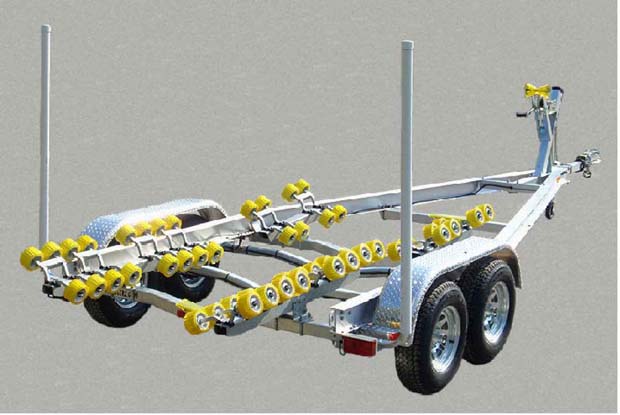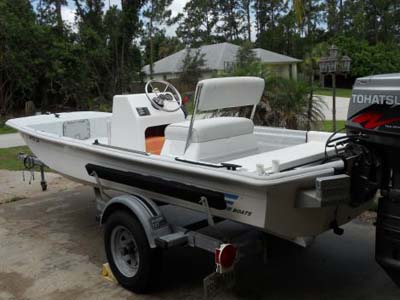Just post up at a boat ramp for a few hours on a holiday weekend and you will likely witness a few impressive boat ramp fiascoes. Surely, some ramps are harder than others so it helps to have a good game plan and a couple rules of thumb. Here, Boating Magazine imparts some helpful wisdom.
By Jim Hendricks / Boating Magazine Digital Edition / Fall 2014
[dropcap]O[/dropcap]n launch ramps with relatively steep inclines – say around 20 degrees or more – getting the boat off the trailer is relatively easy. Yet what about ramps with more gentle slopes? Getting the trailer in deep enough for the boat to float can also put your tow vehicle in dangerously deep. The task turns even more difficult when launching single-handed.
Here are three ways to deal with launching on shallow ramps:
Get a Roller Trailer

A roller trailer like this model from Road King may be the only way to launch a boat at shallow water ramps. Photo Road King Trailers.
On very shallow and unimproved ramps, a roller trailer might prove the only way to launch. Unlike bunk trailers, roller trailers let you easily slide the boat off when there’s not enough water to float it off. The boat also loads more easily, as it literally rolls up onto the trailer as you crank it forward with the trailer winch. The same characteristics that ease launching also make it more likely a boat will roll off the trailer at the wrong time. So it’s doubly important to secure the boat until the trailer is in the water. I’ve seen too many boats slide off a roller trailer and bounce on the pavement to minimize this. Don’t rely solely on the bow strap; secure a safety chain to the bow eye, as well.
Use a Finger Dock
When launching single-handed on a shallow ramp, back the boat down close to a finger dock. Secure long lines between the dock and boat, so that once it floats off the trailer, it won’t float away. Then pull the trailer away. Your boat will be waiting for you at the dock.
Float and Pull Forward
I used this single-handed launch technique with bunk trailers on medium-shallow ramps without finger docks. Before backing into the water, I unfurl from the trailer winch about 10 to 15 feet of strap, but keep it hooked to the boat’s bow eye, with the winch in forward gear. I back down far enough to float the boat off the trailer, but then gently pull the trailer forward a bit. This allows me to tippy-toe down the trailer tongue, clamber over the bow, start the engine and unhook the bow strap.
Source: Jim Hendricks / Boating Magazine Digital Edition / Fall 2014
[information]
[/information]






